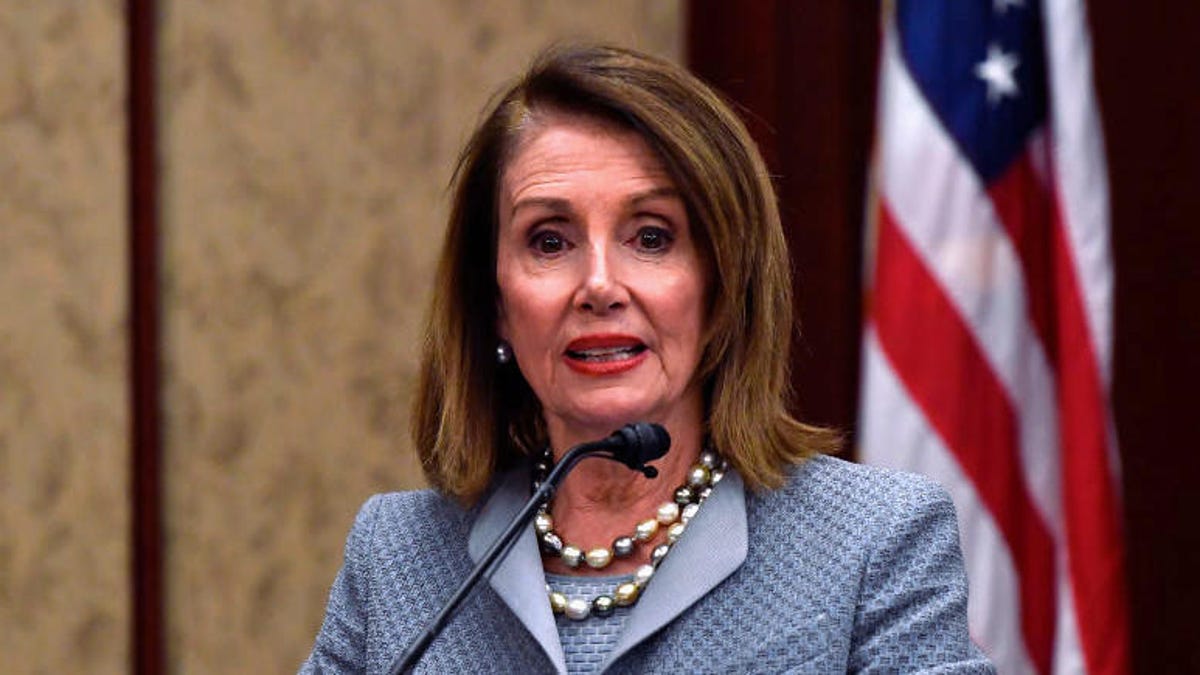Congress investigating deepfakes after doctored Pelosi video, report says
Calling the video a "cheap fake," the House Intelligence Committee chair reportedly said Congress will investigate deepfakes ahead of the 2020 election.

A manipulated clip of House Speaker Nancy Pelosi has people worried about bogus videos in the run-up to 2020.
Congress is looking to investigate deepfakes after the appearance of doctored videos of HouseSpeaker Nancy Pelosi, says a Tuesday report from CNN.
Deepfakes, video forgeries that make people appear to be doing or saying things they didn't, are the moving-picture equivalent of bogus images created with programs like Photoshop. Deepfake software has made manipulated videos accessible and increasingly harder to detect as fake. One technique enables users to make a deepfake using a single image, such as the Mona Lisa.
Speaking with CNN, House Intelligence Committee Chair Adam Schiff, a Democrat from California, reportedly said the Russian fake news campaign during the 2016 presidential election could escalate for the 2020 presidential race thanks to deepfakes.
"The most severe escalation might be the introduction of a deepfake -- a video of one of the candidates saying something they never said," Schiff said.
Schiff called the Pelosi video a "cheap fake."
"Very easy to make, very simple to make, real content just doctored," Schiff reportedly told the publication. "If you look back at how impactful the Mitt Romney videotape about the 47% was, you could imagine how a videotape that is more incendiary could be election-altering.
"Combine that with the fact that we already have a president of the United States who says the things that are real, like the Access Hollywood tape, are fake, and things that are fake, like the Pelosi tape -- he pushes out as real."
On May 23, videos doctored to make Pelosi appear like she was drunkenly slurring her words spread across Facebook .
Facebook refused to take down the viral clip, despite reportedly having been looking into its manipulated-media policy just days before the video appeared.
The Pelosi videos then disappeared from Facebook on Monday, but the social network denied removing them.
In her speech, originally made at a Center for American Progress event, Pelosi accused Trump of being part of a "cover-up." The video was then found by the The Washington Post to have been slowed to around 75% of its original speed, with the pitch of Pelosi's voice also altered.
The doctored videos went viral after being posted to Facebook, Twitter and YouTube, with one version on Facebook being viewed over 1.4 million times and shared 30,000 times.
Pelosi, another Democrat from California, slammed the social network.
"We have said all along, poor Facebook, they were unwittingly exploited by the Russians," Pelosi told KQED News on Wednesday. "I think wittingly, because right now they are putting up something that they know is false. I think it's wrong."
"[Facebook is] lying to the public ... I think they have proven -- by not taking down something they know is false -- that they were willing enablers of the Russian interference in our election," she said.
Schiff's office didn't immediately respond to a request for comment.

